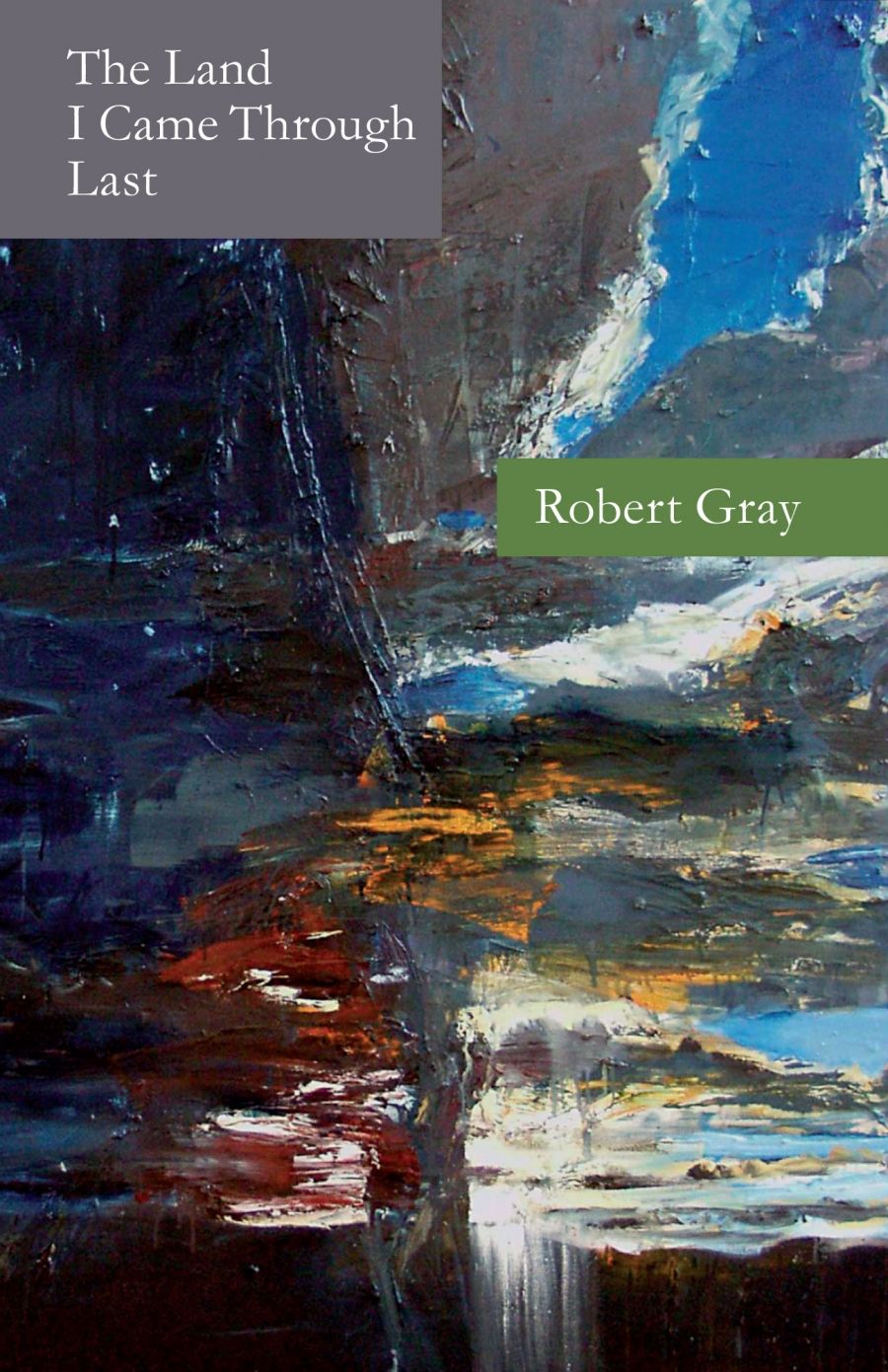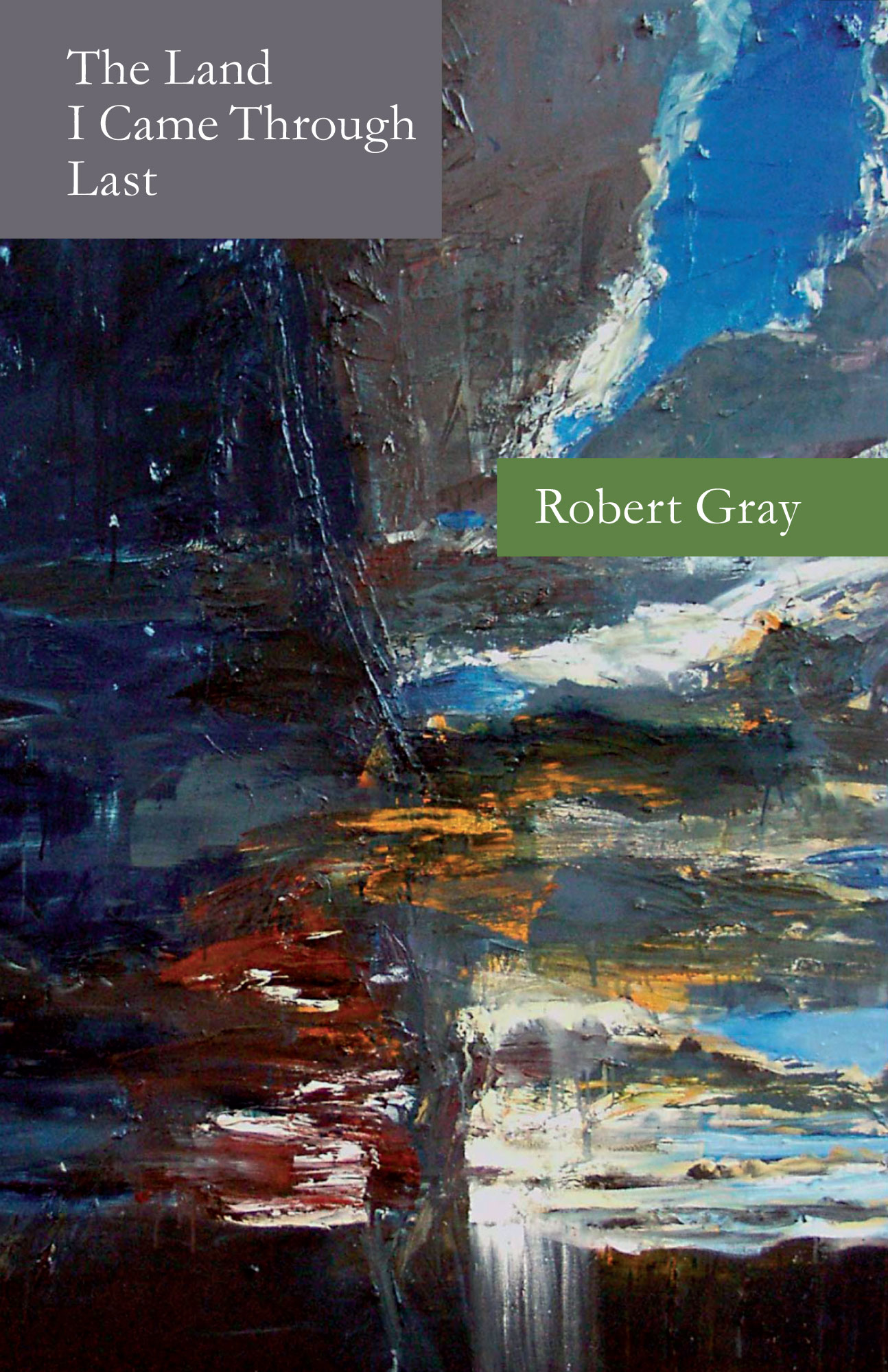
- Free Article: No
- Contents Category: Memoir
- Review Article: Yes
- Article Title: Life in its dailiness
- Online Only: No
- Custom Highlight Text:
As a poet Robert Gray is a magical storyteller. His first poetry collection, Creekwater Journal (1974), marked out his key territory of interest: the small towns, rural communities, landscapes, and people of the New South Wales north coast. Although he has travelled widely and written about other cultures, cities, and characters, his poetry’s richness is still tethered to the textures, talk, and rhythms of his country town childhood. His word pictures immediately transport the reader to another place. The idea that ‘eucalypts are the blue of husky voices’ or the recognition of a long jetty and ‘a few gullmolested fishing boats’ are the images of a beguiling writer.
- Book 1 Title: The Land I Came Through Last
- Book 1 Biblio: Giramondo, $34.95 pb, 436 pp
- Book 1 Cover Small (400 x 600):

- Book 1 Cover (800 x 1200):

The book includes an interesting range of photographs. It is disappointing that the publisher did not caption the photographs on the page each appears on (an index would have been helpful, too). The reader has to turn back to the preliminary pages of the book where there is a full list of captions and the page numbers on which they appear. Many of the photographs are of the author; the other character most well represented is Gray’s father. There are photographs of his father as a child, as a young man at home in Sydney with his dog, in air force uniform with his wife at the time of his marriage, and in a family group of husband and wife and baby Robert. There is also a photograph with a curious caption by Gray. ‘This picture shows how I think my father felt to himself.’ The snapshot is of an isolated figure dressed in slacks, a sports jacket with a white shirt, and tie, standing hatless on a deserted beach, with a flat horizon broken only by a low hill or bluff. In the best family memoirs or autobiographies, if photographs are included and are selected by the author, they often tell a different story from the text.
Flicking backwards and forwards between the photographs, one recognises the strong physical resemblance between father and son. The final photograph in the book is of Gray with the caption, ‘Me, more recently’. There is a strong resemblance of the adult Robert to that of his father in uniform, as well as facial similarities in a photograph of his father as a young boy, posing with his sisters in a studio.
The memoir is, in essence, about a boy growing up in small towns and rural communities in Australia after World War II. Many of the difficulties confronting Gray’s family would have been shared by the thousands of returned soldiers as they faced failed marriages, unemployment, alcohol dependence, issues of child health, and a future which promised neither excitement or adventure. Gray writes about his childhood with great fondness, despite his father’s habitual drunkenness and consequent illness, and his mother’s constant anxiety and desperate family turmoil. The author tells of his career as a cadet journalist, describes a teenage romance and takes pleasure in early writing success. There are fascinating travel stories, accounts of meetings and friendship with famous literary figures, such as Patrick White, and an affectionate remembrance of a friendship with his father’s eldest sister, Margaret. Some moments, enterprises, or relationships are recalled in great detail. Others, such as his marriage at the age of twenty-five, are dismissed with little more than a sentence or a brief explanation.
Gray’s autobiography is a fast-moving account of part of a life. Central to this life and the memoir is Gray’s relationship with his mother and father. It is the powerful account of Gray’s unstable relationship with his father that drives the book.
Gray has taken on a daunting project. Combing through old photographs, family letters and documents, talking to surviving relations about parents or grandparents, and recalling the talk of their siblings or neighbours, there is still an incomplete puzzle. As Gray indicates in his preface, ‘Yet while we may be able to recall things a person did, and draw inferences from them, we cannot experience what it means for another to be him or herself. There is no possibility that someone’s sense of the weight and the texture of life could be communicated, in its dailiness.’
Gray begins and ends the memoir with a reference to his father. The opening sentence, ‘My father was a remittance man in his own country’, signals the unresolved relationship between father and son. It also defines directly and economically the father’s position in his own family and suggests a level of education, social expectation, and cultural awareness which, with the drunkenness and lack of responsibility for the family, troubled the relationship between father and son. In the closing paragraph of the book, the author contrasts his mother’s death with that of his father:
My mother died quite differently from my father. Her life evaporated in the night. She was typically gentle, isolated, self-effacing. My father died while making yet another attempt at escape; there was a crashing noise from his room at about one in the morning. He should have been long asleep, but they found him fully dressed in his day clothes, except for the tie that he had been putting on. He died before a full-length mirror fitted on the inside of his wardrobe door. Life exceeds art: in his heart attack, he fell forward, and was left kneeling, his forehead propped against his broken image.
This memoir is haunted by the image of the author’s father, a man of wit, charm, poetry, and learning, who never discovered his vocation; a man obsessed with alcohol as an escape from a life which puzzled him. He was a husband unable to deliver the family dream and a father who failed to give his son the love he so fervently desired.
In the final stanza of ‘Poem to My Father’, included in Robert Gray’s collection Grass Script (1979), the poet articulates the confusion of emotion in the failure to connect with his father:
I cannot believe
your wretchedness
on all occasions I recall.
If I think of you
I’m horrified – I become obsessed
with you. It is like
love.
I am filled with pity.
I want to live.
This is a memoir of mesmeric images, of powerful emotion and poetry that lingers in the mind.


Comments powered by CComment